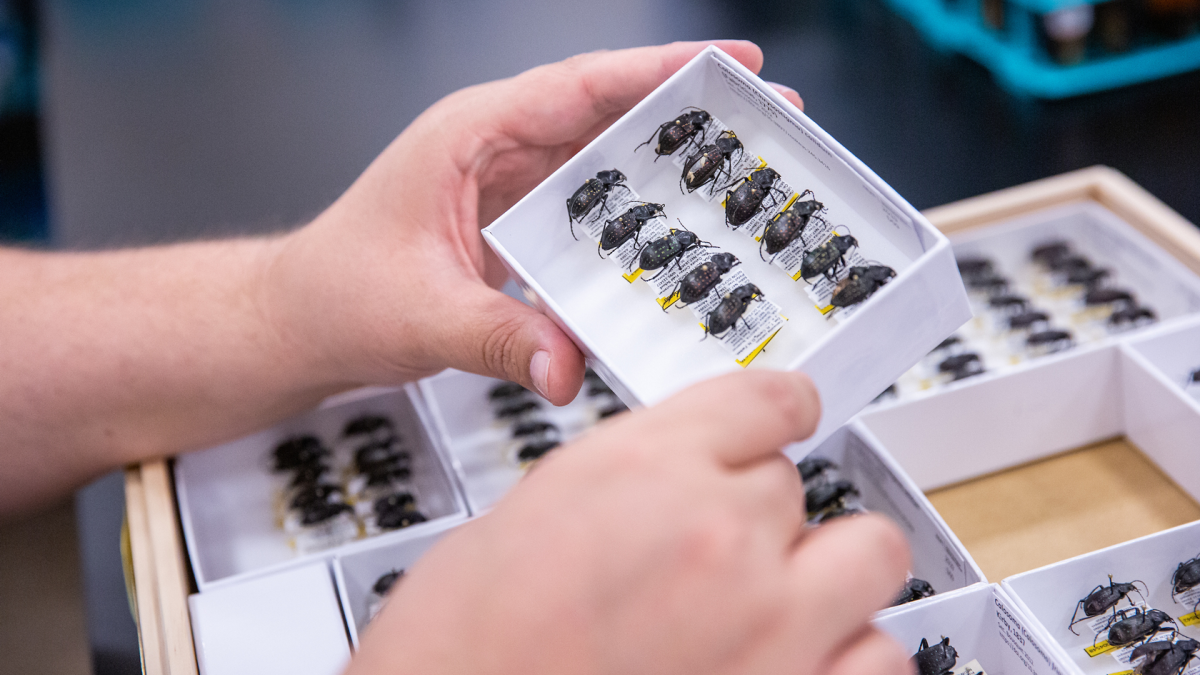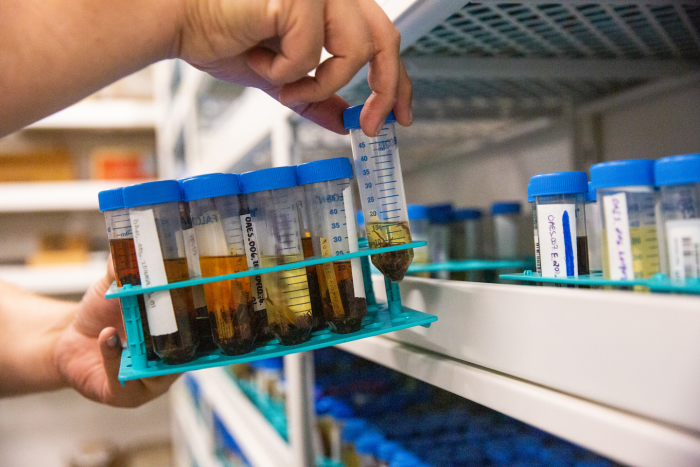NSF, ASU continue partnership to house national biorepository

The NEON Biorepository receives around 100,000 samples every year, and has received, processed and stored over 421,000 samples five years into the partnership. Photo courtesy the NEON Biorepository team
Arizona State University and the National Ecological Observatory Network (NEON) announce the continuation of their partnership to house a national biorepository over a 30-year period that began in 2019.
After receiving funding from the National Science Foundation, NEON selected ASU’s Biodiversity Knowledge Integration Center (BioKIC) and Natural History Collections in Tempe to house millions of biological samples collected over the next three decades from 81 field sites across the U.S., including Alaska, Hawaii and Puerto Rico.
NSF announced on Sept. 22 that Battelle will continue to manage the operations and maintenance of the continental-scale observatory for the next five years, beginning in November and running through October 2028.
“This is a wonderful validation of the buildup and first five years of the NEON Biorepository and our services at ASU. We feel honored and thrilled to continue this project with Battelle, an outstanding lead working with and partnering with us. I look forward to continuing that partnership,” said Nico Franz, Virginia M. Ullman Professor of Ecology, biocollections director in the School of Life Sciences and founding director of ASU’s BioKIC.
NEON is the first-ever continental ecological observation facility with assets across the country, designed to collect long-term open-access ecological data.
The facility receives around 100,000 samples every year, and has received, processed and stored over 421,000 samples five years into the partnership.
Looking ahead to the next five years, NEON plans for 5,000 square feet of capacity enhancements to the NEON Biorepository at ASU for diverse, liquid- and dry-preserved NEON environmental, vertebrate and invertebrate samples. This is in addition to the 3,500-square-foot NEON Biorepository cryo collections facility completed in 2020.
ASU faculty Greg Asner, Erin Carr Jordan and Peter Schlosser will also join the ASU/NEON collaboration, adding new components in the areas of online education and remote sensing to the project, thereby increasing its technical capacity and societal impact.
Asner, the director of the Center for Global Discovery and Conservation Science in the Julie Ann Wrigley Global Futures Laboratory, will lead a Global Airborne Observatory component. The observatory is an airborne laboratory with the most advanced Earth imaging and mapping technology in the civil sector today.
Jordan, the executive director of digital equity and social impact with Enterprise Technology, will help lead an educational component to help grow with learners as they progress into their careers.
“We want to leverage the available NEON data and samples because it’s a great space,” Jordan said. “It is designed to help learners grow their skills in a way that helps their careers but also advances the science and research being done.”
Video courtesy The College of Liberal Arts and Sciences
More Science and technology

ASU to host 2 new 51 Pegasi b Fellows, cementing leadership in exoplanet research
Arizona State University continues its rapid rise in planetary astronomy, welcoming two new 51 Pegasi b Fellows to its exoplanet…

ASU students win big at homeland security design challenge
By Cynthia GerberArizona State University students took home five prizes — including two first-place victories — from this year’s…

Swarm science: Oral bacteria move in waves to spread and survive
Swarming behaviors appear everywhere in nature — from schools of fish darting in synchrony to locusts sweeping across landscapes…


